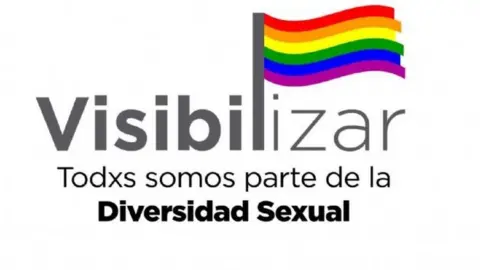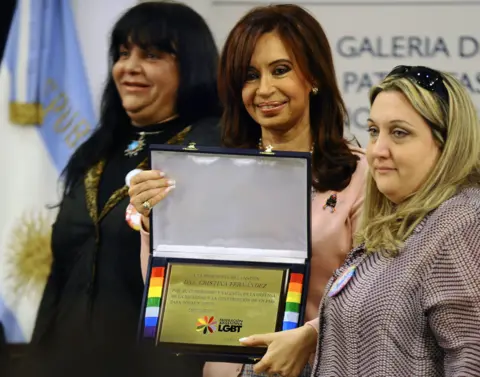Argentine government mocked over heterosexuality tweet
 Twitter
TwitterA tweet posted by Argentina's government office for human rights has been mocked online.
The tweet reads: "Whatever your orientation, we're all part of the sexual diversity.#MakingVisible."
It is followed by a picture with the motto: "Heterosexuality is part of sexual diversity."
Many readers reacted with incredulity and asked if the official government account had been hacked. Others posted memes of people rolling their eyes.

Allow X content?

Most pointed out that a campaign to make people more visible is usually aimed at minorities and not those who are in the majority.
Twitter user @agostinaaznar wrote [in Spanish]: "I've never been discriminated against for being heterosexual and as such I'm already quite visible... You'd be better off giving more visibility to LGBT people, who are oppressed and in need [of such a campaign]."
Fernando Rey (@ferReyPG) posted [in Spanish]: "After years of fighting for the LGBT movement, a stupid and reactionary government wants to make us invisible by saying such a stupidity. Do heteros also get beaten up because of their sexuality?"
LGBT rights groups have been critical of President Mauricio Macri and his centre-right administration.
Stalled progress
While Argentina was the first country in Latin America to legalise same-sex marriage in 2010, rights activists say it still has a long way to go to guarantee the rights and safety of the LGBT community.
They say that both same-sex marriage and groundbreaking legislation which allowed for gender to be legally changed without having undergone reassignment surgery were passed under former President Cristina Fernández de Kirchner and that little has moved since Mr Macri took power.
 Getty Images
Getty ImagesKillings of transgender activists in recent years have shone a spotlight on the violence LGBT people still face.
The tweet comes a week after President Macri held a public meeting with an all-female "extended cabinet" in an effort to boost his feminist credentials.
At the meeting he said: "Thanks to politics, I discovered the potential of women."
He also described women as "very different and so strong".
